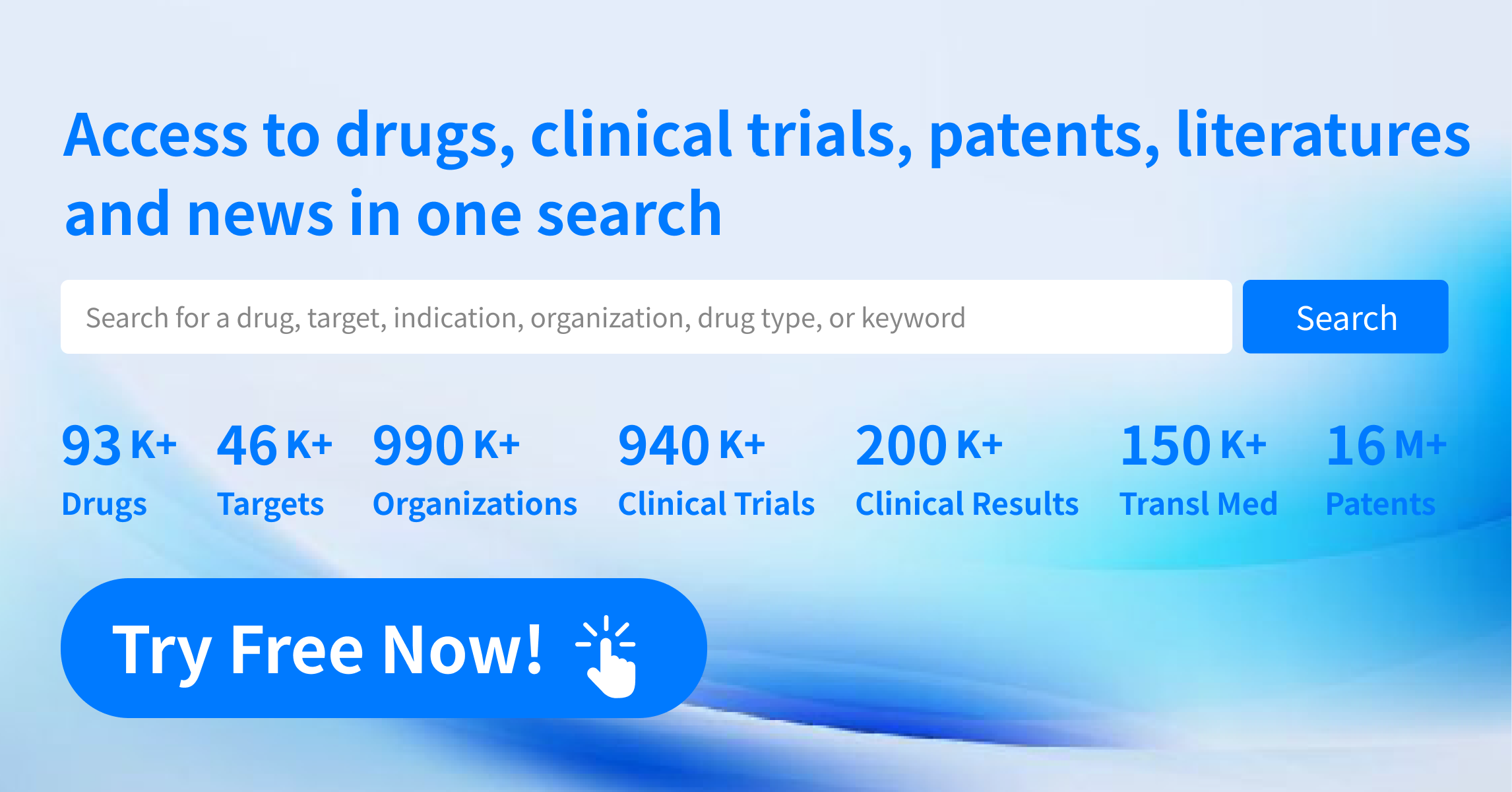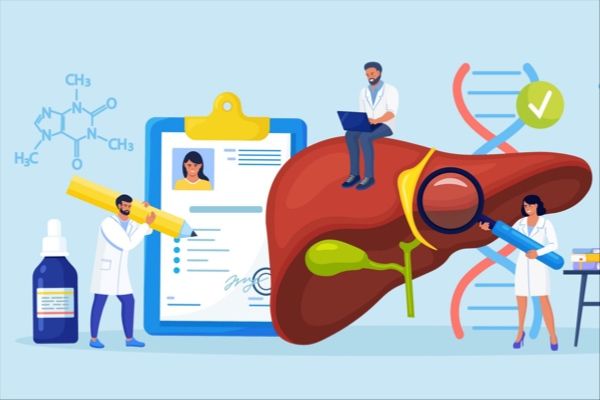Pharma Frontiers: Daily Digest of Global Pharmaceutical News – Aug 14
1.Pfizer's new hemophilia treatment marstacimab (PF-06741086) has been accepted for marketing application in China
On August 13, the website of the Center for Drug Evaluation (CDE) of the National Medical Products Administration (NMPA) of China announced that Pfizer's class 1 therapeutic biologic product, marstacimab injection, has been accepted for marketing application in China. Marstacimab is a new type of hemophilia treatment developed by Pfizer, requiring a subcutaneous injection once a week. Notably, marstacimab injection treats hemophilia by targeting the tissue factor pathway inhibitor (TFPI). It works differently from factor replacement drugs, its efficacy is expected not to be affected by the presence of inhibitors, and it could potentially solve the major problem in current clinical therapy, which is the generation of inhibitors. Moreover, its once-a-week subcutaneous administration is more convenient and expected to improve adherence among patients. Hemophilia is a hereditary bleeding disorder caused by a genetic defect. Hemophilia A is caused by a lack of clotting factor VIII, while hemophilia B is due to a lack of factor IX. Patients bleed longer after injury or surgery, and spontaneous bleeding can also occur in the muscles, joints and organs, which can be life-threatening in severe cases. Current main treatment for hemophilia is factor replacement therapy, but many patients develop inhibitors (antibodies produced by the immune system) during treatment which affects their results. As a result, the industry is developing various new types of treatments to tackle this issue. Among these, the targeted treatment of TFPI inhibitors, a naturally occurring anticoagulant protein in the human body, is one of the therapies being researched. Public info shows that Pfizer is also conducting another phase 3 trial of marstacimab to research its use in treating patients with hemophilia A and B, with or without inhibitors present in the body. Marstacimab was previously granted a Fast Track designation and Orphan Drug designation by the U.S. FDA, which is currently reviewing the application for its marketing approval.
2.Aosaikang Pharmaceutical's third-generation EGFR-TKI Limertinib applies for new indications on the market
On August 13, the official website of the Drug Evaluation Center of the Chinese National Medical Products Administration (CDE) announced that the Class 1 new drug Limertinib tablets application for market approval submitted by Aosaikang Pharmaceutical was accepted. According to the announcement by Aosaikang Pharmaceutical, Limertinib is a third-generation epidermal growth factor receptor tyrosine kinase inhibitor (EGFR-TKI) with a new molecular structure. This is the second application for marketing of the product, and the planned indications are for first-line treatment of adult patients with locally advanced or metastatic non-small cell lung cancer (NSCLC) with EGFR exon 19 deletion (19DEL) or exon 21 substitution mutation (L858R). Limertinib is a highly active, orally administered, third-generation EGFR TKI designed for the treatment of EGFR mutant non-small cell lung cancer. It is reported that Aosaikang Pharmaceutical has completed Phase III clinical trials of Limertinib versus Gefitinib as first-line treatment for patients with locally advanced or metastatic NSCLC with EGFR sensitizing mutations, and the phase III clinical trials have reached the primary research endpoint. In addition to this submission for first-line treatment in NSCLC indications, Aosaikang Pharmaceutical has previously submitted a market approval application for Limertinib for second-line treatment of adult patients with locally advanced or metastatic NSCLC who have experienced disease progression during or after EGFR-TKI treatment and have been confirmed to have an EGFR T790M positive mutation or primary EGFR T790M positive mutation. The application was accepted in November 2021 and is currently under review and approval.
3.LENZ submits a marketing application for aceclidine to the US FDA
On August 13, LENZ Therapeutics announced that the company has submitted a new drug application (NDA) for its aceclidine eye drop formulation LNZ100 for the treatment of presbyopia to the U.S. FDA. Based on previously released results from phase 3 trials, without affecting patients' distance vision, patients' near vision can be significantly improved within 30 minutes after using LNZ100 eye drops, and the effect can last for 10 hours! This means that patients only need to apply a few drops of eye drops in the morning, and almost the whole day's near vision can be improved! It is estimated that there are about 1.8 billion presbyopic patients worldwide. The NDA submission was supported by positive data from the pivotal phase 3 CLARITY study of LNZ100 for the treatment of presbyopia. CLARITY is a phase 3 multi-center, double-blind, randomized efficacy and safety study for the treatment of presbyopia. It consists of two six-week efficacy trials, CLARITY 1 and 2, and a six-month safety trial, CLARITY 3. Analyses showed that LNZ100 (1.75% aceclidine) achieved the primary and key secondary endpoints, showing an improvement in reading of more than three lines (15 letters) on the vision chart in near vision measurements, without losing one line (5 letters) of distance vision. LNZ100 developed by LENZ uses aceclidine as the main ingredient. Aceclidine is a small molecule acetylcholine receptor agonist that can cause pupil constriction, creating a pinhole effect, thereby improving near vision. However, compared with other acetylcholine receptor agonists, it has a more specific effect on the iris muscles controlling pupil size, thereby reducing the contraction of ciliary muscles, reducing the refractive changes of the lens, and avoiding affecting patients' distance vision.
4.Ascendis' Long-Acting Hormone Therapy Receives FDA Approval, Nearly 80% of Patients Achieve Phase 3 Primary Endpoint
On August 13th, Ascendis Pharma announced that the U.S. FDA has approved Yorvipath (palopegteriparatide) for the treatment of adult hypoparathyroidism. According to the press release, Yorvipath is the first drug to receive FDA approval for the treatment of adult hypoparathyroidism. Hypoparathyroidism is a rare endocrine disorder characterized by insufficient parathyroid hormone (PTH) levels, leading to low calcium and high phosphate levels in the blood. Most patients develop this disorder as a result of damage during thyroid surgery, or accidental removal of the parathyroids. Conventional treatments with calcium supplements and active vitamin D cannot effectively address the short-term symptoms, long-term complications, or impact on the quality of life of hypoparathyroidism. Currently, there are no alternative treatments that restore physiological hormone levels. The FDA's approval of Yorvipath is based on data from the Yorvipath's global Phase 2 PaTH Forward trial and the Phase 3 PaTHway trial. In the Phase 3 clinical trial announced in March this year, 82 adult patients with chronic hypoparathyroidism were enrolled. The trial results showed that 78.7% of the patients treated with Yorvipath achieved a serum calcium level within the normal range (8.3–10.6 mg/dL), without relying on conventional treatment. In the placebo group, this value was only 4.8% (p<0.0001). Furthermore, both bodily and cognitive symptoms of patients, measured by the Hypoparathyroidism Patient Experience Scale (HPES), were statistically significantly reduced. Yorvipath (formerly known as TransCon PTH) is a once-daily long-acting parathyroid hormone prodrug. It aims to restore PTH to physiological levels for 24 hours every day to address the short-term symptoms and long-term complications of this disease. Yorvipath has been granted an Orphan Drug designation for the treatment of hypoparathyroidism in the United States and European Union.
5.Pfizer's RSV Vaccine Reaches Phase 3 Clinical Primary Endpoint
On August 13th, Pfizer announced the safety and immunogenicity results of an ongoing key phase 3 clinical trial, MONeT sub-study B. The results showed that the administration of two doses of the Abrysvo vaccine has good safety and immunogenicity in immunocompromised adult patients. These adult patients are aged 18 years and over and are at high risk of developing severe respiratory syncytial virus (RSV) related lower respiratory tract disease (LRTD). The risk of developing RSV-LRTD increases in immunocompromised adults. Sub-study B of the MONeT trial aimed to evaluate the safety and immunogenicity of two doses of the Abrysvo vaccine (administered one month apart) in four groups of immunocompromised adults. These four groups are: non-small cell lung cancer patients, patients undergoing hemodialysis for end-stage kidney disease, patients undergoing immunomodulatory treatment for autoimmune inflammatory diseases, and organ transplant recipients. The sub-study involved 203 adults, with approximately half aged between 18 and 59, and the other half aged 60 and over. During the trial, the Abrysvo vaccine exhibited good tolerability, and its safety was consistent with the results of other studies. Although the company evaluated the effect of two vaccine doses, a single 120 microgram dose of the Abrysvo vaccine generated strong neutralizing responses against both RSV-A and RSV-B subtypes in all cohorts and age groups in the study. Pfizer plans to share these findings at an upcoming scientific meeting and publish them in a peer-reviewed scientific journal, while also submitting these data for review by regulatory authorities. RSV is a contagious virus that is one of the common causes of respiratory diseases. The virus can affect the lungs and respiratory tract of those infected, potentially leading to severe illnesses in infants, the elderly, and patients with certain chronic diseases.
6.Novo Nordisk's Diabetes Treatment Reaches Phase 3 Primary Endpoint
On August 13th, Novo Nordisk announced at its first-half investor meeting that its investigative diabetes treatment IcoSema achieved positive results in the vital Phase 3 trial COMBINE 1. The company plans to submit its marketing application for the therapy for Type 2 diabetes (T2D) patients to regulatory bodies in China, the United States, and the European Union in the second half of this year. The announced COMBINE 1 trial is an international Phase 3 trial, aiming to compare the blood sugar control effects of once-weekly IcoSema and once-weekly Icodec in patients with T2D. Analysis revealed that the trial had achieved its primary endpoint, with the glycosylated hemoglobin (HbA1c) levels of patients in the IcoSema group decreasing by 1.6 percentage points at week 52 compared to baseline, and the Icodec group decreasing by 0.9 percentage points, a difference that is statistically significant. For the secondary endpoint, the weight of patients in the IcoSema group decreased by 3.7 kg at week 52, while patients in the Icodec group increased by 1.9 kg, a difference that is also statistically significant. Moreover, the risk of severe hypoglycemia events (0.14 times per patient per year) in the IcoSema group was significantly lower than in patients treated with Icodec (0.63 times per patient per year). IcoSema demonstrated good safety and tolerability in the trial. There are three late-stage studies for the development of IcoSema for T2D. Results of the COMBINE 3 phase 3a trial announced in January this year showed that among 679 T2D patients with poor control using once-daily basal insulin, once-weekly IcoSema demonstrated non-inferiority in reducing HbA1c compared to once-daily insulin injection therapy.
How to obtain the latest research advancements in the field of biopharmaceuticals?
In the Synapse database, you can keep abreast of the latest research and development advances in drugs, targets, indications, organizations, etc., anywhere and anytime, on a daily or weekly basis. Click on the image below to embark on a brand new journey of drug discovery!




